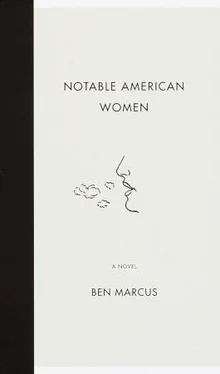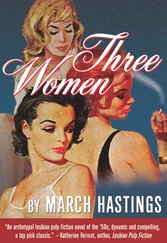The bag did not fly for long, considering what some birds do. But by the time the short, harsh splash had sounded, as plain as an old man coughing, I had turned my back on the pond and was already setting out for home.
My father would not be there. No one resembling a mother would be there. And now Pal would not be there. There would be people answering to names they did not deserve. It would hurt to say their names. I would head upstairs and crack the seal on a jar of tomorrow’s water, next week’s water, next year’s thin, sweet water — going as far ahead into the future as I could, until the water was barely there, clear and weak and airy — and I would commence a fine, hard drinking spell, until this whole day, and the days before it, and then the people in those days and myself entirely, and my hard, dead name turned into a slick wire that pulled farther and farther away from me, slipping finally from view as I filled myself, as I took in enough water to make myself forever new to the small world that held me.
I AM PROBABLY BEN MARCUS. I might be a person. There’s a chance I lived on a farm meant to muffle the loud bodies of this world, a sweet Ohio locale called Home, where our nation’s women angled toward a new behavior, a so-called Final Jane. We could have had special water there, a behavior television, a third frequency, after AM and FM, for women’s messaging, for women to steal the air and stuff it with their own private code.
Most likely I am still alive, suffering from a heart, unsatisfiable hands, legs that walk away. I may be the son of a woman who chooses not to move, refuses to speak. My father could be interred in a hole — the American word for his condition would be “buried”—punished for interfering with the women who called an end to motion and noise. My father may have stood up to himself and lost.
If I had really lived, I would have been the subject of emotion-removal experiments, person-blocking strategies (PBS), attempts to zero out my heart. It may have worked. Yet somewhere in the past, a period of time also called the mistake zone, it’s possible a hardened creature with black hair, wrongly taken for a dog, took a leading role with my heart, walked me through a series of steps that ended up counting as my life, then left me in some after-house called Ohio, where I have nothing to do but issue reports.
It’s possible that I cannot hear, that my head will not admit sound. There is very little chance that I survived.
System Requirements
This book is unfortunately designed for people. People are considered as areas that resist light, mistakes in the air, collision sweet spots. At the time of this writing, the whole world is a crime scene: People eat space with their bodies; they are rain decayers; the wind is slaughtered when they move. A retaliation is probably coming. Should a person cease to move, she would cease to kill the sky, and the world might begin to recover. Women seeking to increase their Mercy Quotient should follow the example of my mother and her cohorts by bringing a New Stillness upon their persons. They should read no further, for even reading is an embarrassing spasm of the body.
Although this book is for people in general, it is more specifically designed for people who have fallen over, who can’t get up, whose hands hurt and eyes smart, whose limbs are tired on the inside, though doctors might find nothing wrong with them.
Healthy, sturdy, “strong people” (an oxymoron) are welcome to do their best to fetch this book into their persons through whatever word-eating technology they favor: reading, scanning, the poultice, a Brown Hat. But healthy, sturdy, and strong people probably don’t need to be reading a book, do not miss anything in their lives that would make them want to waste time sitting down with a book that, admittedly, won’t do much to add to their strength or confidence or well-being, properties that are probably cresting at an all-time high for them right now anyway. Such persons might find their assets diminished with this book, which in turn might lead this book to be seen as a challenge for those who are enlivened by threats of failure, people who have only ever thrived after being criticized, demeaned, misunderstood. In which case, this book can accommodate the healthy, sturdy, and strong people, but it may be an occasion of loneliness and confusion for them, though the whole notion of an “occasion” fairly thoroughly guarantees loneliness and confusion, and such emotions are not technically supported. Nor are any other emotions technically supported here. Readers looking to indulge in the having of emotions (HOE) should do so on their own time, in small bursts, preferably in a closed room, coughing often into an absorbent rag and wringing the rag down a drain.
But for the Limitations of Space
There should be pages of this book devoted only to women’s weather, to Atlanta wind, to the women’s radio frequency, to the mouth storm. A one-hundred-page section, with German references, should provide a final history of the American mouth. The American mouth would never need to be discussed again.
But for the limitations of space, more man-on-the-street interviews would have been conducted; a new technology for weeping would have been produced; a character named Steve would have died repeatedly at the start of each chapter. But for the limitations of space, this entire book would go without saying.
There should be a list of all the people who have walked the earth, or been seen breathing above it, their names and habits, the failures and successes of their hands. The list would be a pull-out parchment affair, embossed with small type. It would finally be a book that excluded no one. And then when all the world’s people had been singled out and praised for their good works, forgiven their failures and near misses and broken promises, both to themselves and others, excused every digression of their hearts, when their names had finally been inscribed by wire onto a piece of wood that bands the earth like a belt holding the whole place together, these people would once and for all be killed, so that they won’t return and won’t be remembered, a complete killing in the old-fashioned style of the Ohio Exits, where not only the person is killed but the things around him and any referencing devices indexing, in any way, the person: killed. In a perfect world, these people would continue being killed until a zero population had been reached, until the cities and towns and other life-viable areas and elsewhere were just empty boxes free of people, and the phrase “free of people” could actually be uttered safely in every area and finally be considered true.
In a Perfect World
All the characters in this book should line up one by one and walk through a low-lit wood-paneled room, where you should be able to inspect their bodies, their hair, look into their mouths. You should be able to undress and handle them as though they belonged to you, pursue a casually confident intercourse against their flesh without recrimination — unless you desire it; without consequence — unless it is part of your arousal apparatus to be blamed, held accountable, reproached.
Good books should offer characters for fondling, more characters for private and group fondling, in lakes and onshore, whatever sweet locale the customer chooses. In a perfect world, good books would offer characters with sparse, tear-away clothing and touchable bodies, sweet faces, skin that smells the way milk would smell if it were really the tears of God, just the most perfect kinds of people, provided by the very best books, so that we could finally stop the world of the book and fish the attractive people from it for our own private inspection, which even the best books have already denied us, though we are taunted with the most believable, palpable, and beautiful characters, who, no matter how real they seem to us, ultimately fail us miserably because we can never touch or fondle them, cannot fish them from fakery and thrust away all our frustration on them.
Читать дальше












